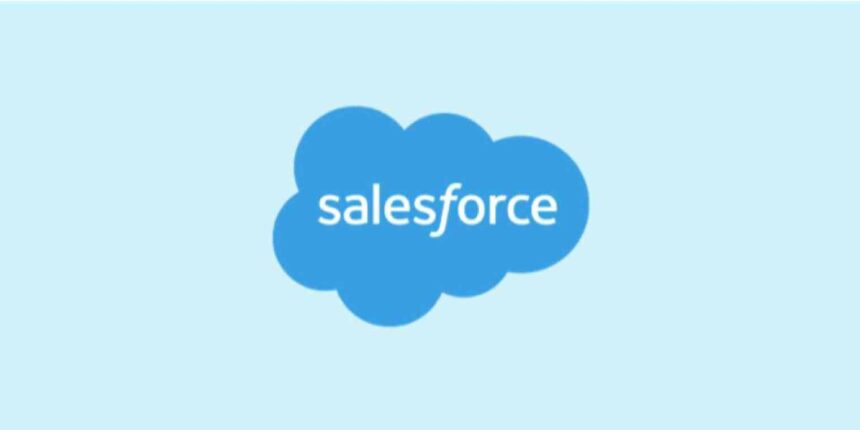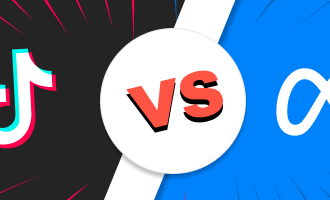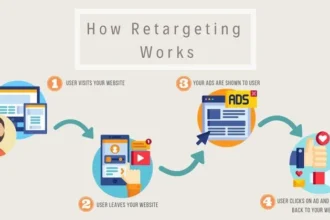Mastering Salesforce CRM Campaigns
In Nigeria’s fast-paced B2B market, sales teams need tools to stay ahead. Salesforce CRM is a powerful platform that helps businesses manage customer relationships and track campaign success. For Nigerian B2B sales teams in cities like Lagos or Abuja, mastering Salesforce campaigns can boost efficiency and profits. A key part of this is tracking return on investment (ROI) to ensure every campaign delivers value. This guide explains how to use Salesforce CRM to run campaigns and measure ROI effectively. We’ll keep it simple, practical, and tailored to Nigerian businesses.
Why Salesforce CRM for Nigerian B2B Sales Teams?
Salesforce CRM is a cloud-based tool that helps businesses manage leads, customers, and campaigns. For Nigerian B2B sales teams, it offers benefits like:
- Centralized Data: Store all customer information in one place for easy access.
- Automation: Save time by automating repetitive tasks like email follow-ups.
- Scalability: Works for small startups in Port Harcourt or large firms in Lagos.
- ROI Tracking: Measure campaign performance to make smarter decisions.
In Nigeria, where B2B sales often involve long sales cycles and multiple decision-makers, Salesforce helps teams stay organized and focused. Tracking ROI ensures you know which campaigns work and which need improvement.
Setting Up Salesforce Campaigns for Success
To master Salesforce campaigns, you need a clear setup process. Follow these steps to get started:
1. Define Campaign Goals
Before launching a campaign, know what you want to achieve. Common goals for Nigerian B2B sales teams include:
- Generating new leads for tech solutions in Lagos.
- Increasing sales for manufacturing equipment in Kano.
- Building brand awareness for financial services in Abuja.
Clear goals help you measure ROI later. For example, if your goal is lead generation, you can track how many leads convert to sales.
2. Create a Campaign in Salesforce
In Salesforce, go to the “Campaigns” tab and click “New.” Fill in details like:
- Campaign Name: Make it specific, e.g., “Lagos Tech Expo 2025 Lead Gen.”
- Type: Choose email, event, or webinar based on your strategy.
- Start and End Dates: Set a timeline to track performance.
- Budget: Enter the total cost, including ads, events, or email tools.
For Nigerian teams, consider local factors like market trends or holidays when planning campaigns.
3. Segment Your Audience
Use Salesforce to segment your audience based on:
- Industry (e.g., oil and gas, fintech, or agriculture).
- Location (e.g., Lagos, Abuja, or Port Harcourt).
- Company size or revenue.
Segmentation ensures your campaign targets the right businesses. For example, a campaign for SMEs in Ibadan might focus on affordable software solutions.
4. Add Leads and Contacts
Link relevant leads and contacts to your campaign. Salesforce lets you import data or add it manually. For Nigerian teams, ensure your data includes local details like phone codes or business addresses.
5. Use Campaign Templates
Salesforce offers templates for emails, landing pages, and forms. Customize these to fit Nigerian audiences. For instance, use local slang or references to connect with prospects in Abuja.
Tracking ROI in Salesforce Campaigns
ROI measures how much profit a campaign generates compared to its cost. For Nigerian B2B sales teams, tracking ROI helps justify marketing budgets and improve strategies. Here’s how to do it in Salesforce:
Step 1: Set Up Key Metrics
To calculate ROI, track these metrics:
- Cost: Total campaign expenses (ads, events, tools).
- Revenue: Sales generated from the campaign.
- Leads Generated: Number of new leads from the campaign.
- Conversion Rate: Percentage of leads that become customers.
- Customer Lifetime Value (CLV): Estimated revenue from a customer over time.
For example, a campaign for a Lagos-based IT firm might cost ₦500,000 and generate ₦2,000,000 in sales. These numbers are key to calculating ROI.
Step 2: Use Salesforce Reports
Salesforce has built-in reporting tools to track campaign performance. Go to the “Reports” tab and create a custom report. Include metrics like:
- Leads by campaign source.
- Opportunities (potential sales) linked to the campaign.
- Closed deals and revenue.
For Nigerian teams, filter reports by region or industry to see what works best locally.
Step 3: Calculate ROI
Use this formula to calculate ROI:
ROI (%) = [(Revenue - Cost) / Cost] x 100
Example: If a campaign costs ₦500,000 and generates ₦2,000,000 in revenue:
ROI = [(2,000,000 - 500,000) / 500,000] x 100 = 300%
This means the campaign returned three times its cost. Salesforce’s dashboards can automate this calculation for you.
Step 4: Analyze Campaign Influence
Salesforce’s “Campaign Influence” feature shows how campaigns contribute to sales. For instance, a webinar in Abuja might lead to a follow-up call that closes a deal. This feature helps Nigerian teams see which campaigns drive the most value.
Tips for Nigerian B2B Sales Teams
Here are practical tips to maximize Salesforce campaigns and ROI in Nigeria:
1. Localize Your Campaigns
Understand Nigeria’s diverse market. Tailor campaigns to local needs:
- In Lagos, focus on tech and finance industries.
- In Port Harcourt, target oil and gas companies.
- Use local languages like Yoruba or Igbo in emails for better engagement.
2. Leverage Mobile-Friendly Campaigns
Many Nigerian professionals use smartphones. Ensure emails and landing pages are mobile-optimized. Salesforce’s drag-and-drop tools make this easy.
3. Monitor Competitors
Use Salesforce to track competitors’ strategies. For example, analyze if a rival’s campaign in Abuja is targeting the same fintech firms. Adjust your approach to stand out.
4. Train Your Team
Invest in Salesforce training for your team. Many Nigerian businesses underuse Salesforce because of poor training. Use free resources on Salesforce Trailhead to learn campaign management.
5. Test and Optimize
Run small test campaigns before scaling up. For example, test an email campaign with 100 leads in Lagos before targeting 1,000 across Nigeria. Use Salesforce analytics to see what works and improve.
Related article: Best CRM for Small Businesses in Nigerian 2025 Edition
Common Challenges and Solutions
Nigerian B2B sales teams may face these challenges when using Salesforce:
Challenge 1: Limited Budgets
Solution: Start with low-cost campaigns like email marketing. Salesforce’s Email Studio is affordable and effective for Nigerian SMEs.
Challenge 2: Data Quality
Solution: Clean your Salesforce data regularly. Remove duplicates and update contact details to ensure accurate targeting.
Challenge 3: Long Sales Cycles
Solution: Use Salesforce to automate follow-ups. Set reminders for calls or emails to keep prospects engaged over months.
Challenge 4: Measuring ROI Accurately
Solution: Link every sale to a campaign in Salesforce. Use custom fields to track Nigeria-specific metrics like “region” or “industry.”
Case Study: A Nigerian Fintech Success Story
A Lagos-based fintech company used Salesforce to launch a campaign targeting SMEs. They spent ₦300,000 on email marketing and webinars. Using Salesforce, they tracked:
- 500 new leads.
- 50 converted to customers.
- ₦1,500,000 in revenue.
Their ROI was:
ROI = [(1,500,000 - 300,000) / 300,000] x 100 = 400%
By analyzing Salesforce reports, they found webinars performed better than emails. They doubled down on webinars, boosting ROI further.
Conclusion
Mastering Salesforce CRM campaigns is a game-changer for Nigerian B2B sales teams. By setting clear goals, segmenting audiences, and tracking ROI, you can make every campaign count. Salesforce’s tools make it easy to measure success and improve strategies. Whether you’re in Lagos, Abuja, or Port Harcourt, these steps will help you drive sales and grow your business. Start small, test often, and use data to guide your decisions. With Salesforce, Nigerian B2B teams can compete smarter and win bigger.






